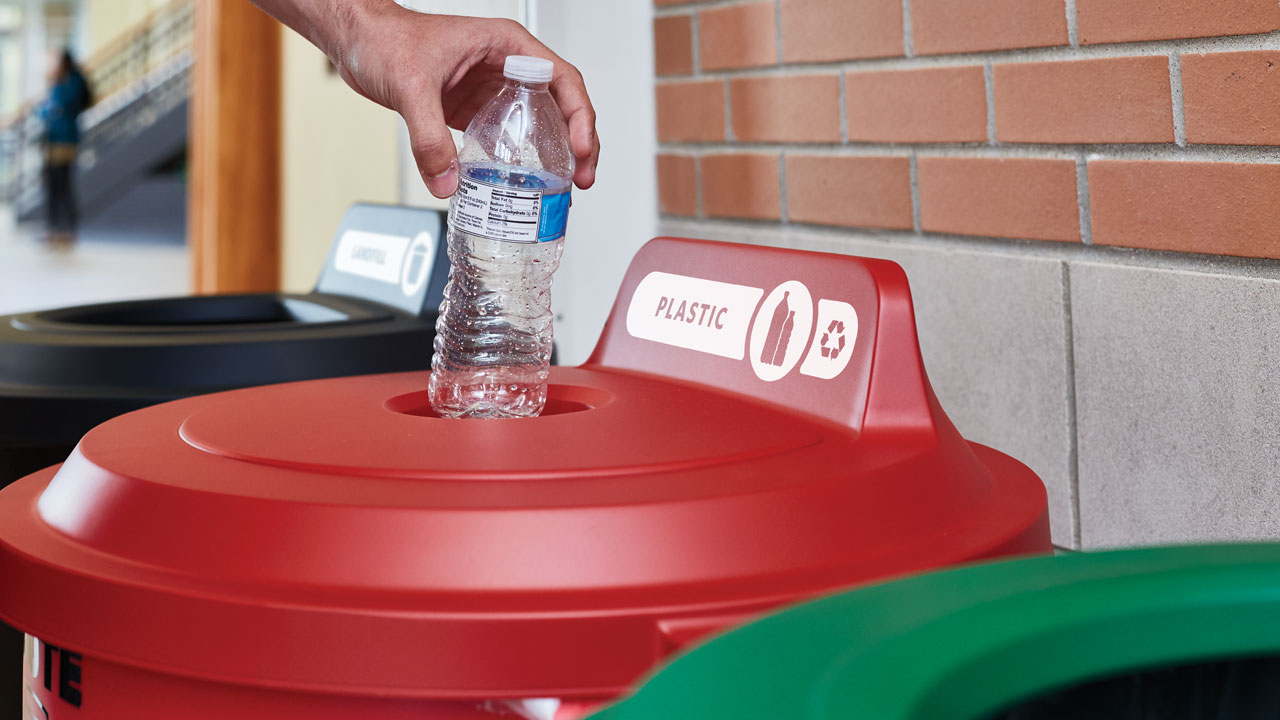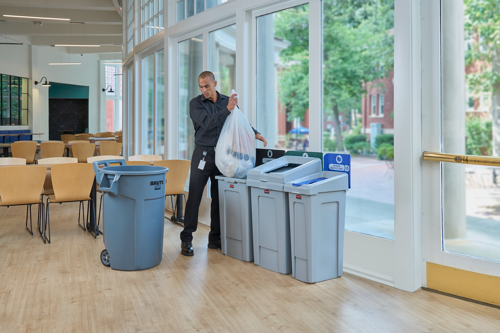
Navigating the complex terrain of the commercial sector, it becomes clear that adopting robust waste management and sustainability practices is not just a trend, but a necessity. But why is it pivotal to reduce waste, and what role does waste management — endorsed by the Environmental Protection Agency — play in shaping a business's environmental footprint?
The answers lie in the nuanced choices businesses make daily, which substantially impact the amount of waste generated, including food waste in commercial settings. Commercial sustainability is a multifaceted approach. It transcends the simple adoption of recycled materials, urging businesses to prioritise product longevity and proactive waste reduction strategies, a key sustainable development goal.
To grasp the full spectrum of this concept, watch this insightful video to learn more.
And now, let’s look at five ways your organisation can make greener choices for present and future success.
1. Assess Your Waste Stream
To achieve sustainability, it's crucial first to scrutinise your business's waste streams, including business waste and organic waste. Conducting an audit can unveil areas ripe for improvement, helping formulate economically viable and environmentally friendly strategies.
So, how can you effectively reduce waste? It begins with a thorough assessment, paving the way for informed decisions and sustainable practices, including waste minimisation and proper disposal of waste material.
2. Invest in Durable Products
Investing in durable products is a cornerstone in pursuing commercial sustainability. The economic benefits are manifold, including long-term cost savings and a significant reduction in waste generation.
But what exactly are these economic benefits? They manifest in fewer replacements, less downtime and a substantial decrease in the waste heading to a landfill, reducing the reliance on unnecessary packaging and plastic containers. 

Learn more about why investing in product longevity is a powerful step to take here.
3. Be Mindful of Recycled Materials
While recycled materials are often touted as the epitome of sustainability, it's essential to challenge this assumption critically. Are products made from recycled materials always the greener choice? Not necessarily.
Sometimes, these products can have a shorter lifespan, leading to increased waste in the long run, including plastic waste. It's vital to weigh the pros and cons, making an informed choice that leans towards durability without disregarding the potential benefits of recycled materials.
4. Prioritise Multi-Use Items
In the quest to reduce waste, prioritising multi-use items over single-use counterparts can be a game-changer. Mindful consumption entails selecting products that serve several purposes and last longer, thereby reducing waste.
So, what should businesses consider when selecting products to minimise waste? Firstly, it revolves around opting for items that marry functionality with durability, nurturing a culture of sustainability. Additionally, using reusable bags and containers, including reusable produce bags, can be a significant step in the right direction.
5. Implement a Zero-Waste Policy
Taking a step further, implementing a zero-waste policy can drastically alter the waste dynamics within a business. This approach seeks to divert materials from landfills through recycling, composting or reusing, cultivating a cycle of sustainability and a circular economy.
How can this policy enhance sustainability? Businesses can carve an economically viable and environmentally responsible path by redefining commercial sustainability and choosing lasting solutions, focusing on resource recovery and safeguarding natural resources.
It's time to pivot, embrace strategies that prioritise longevity, steer clear of hazardous waste and foster a culture of reuse, including using separate bins for various types of waste materials and avoiding the use of unnecessary items like bottled water and single-use plastic containers.

Make Sustainability a Business Priority
For years, the commercial sector has been dominated by a culture of disposability, often sidelining the essential principles of the waste hierarchy. Yet, as we delve deeper into commercial sustainability, the need for a paradigm shift becomes glaringly apparent. The decisions you make now have the power to forge a future grounded in durability and sustainability, a stark departure from the fleeting gains of the past few years.
Join hands with Rubbermaid Commercial Products, a brand emblematic of both durability and sustainability, in spearheading this transformative shift. Embrace the opportunity to cultivate a future that is not only greener but also prosperous in a genuine sense.
Dive deeper into Rubbermaid Commercial Products’ dedication to sustainability here, and equip yourself to infuse sustainability into your business strategies seamlessly.